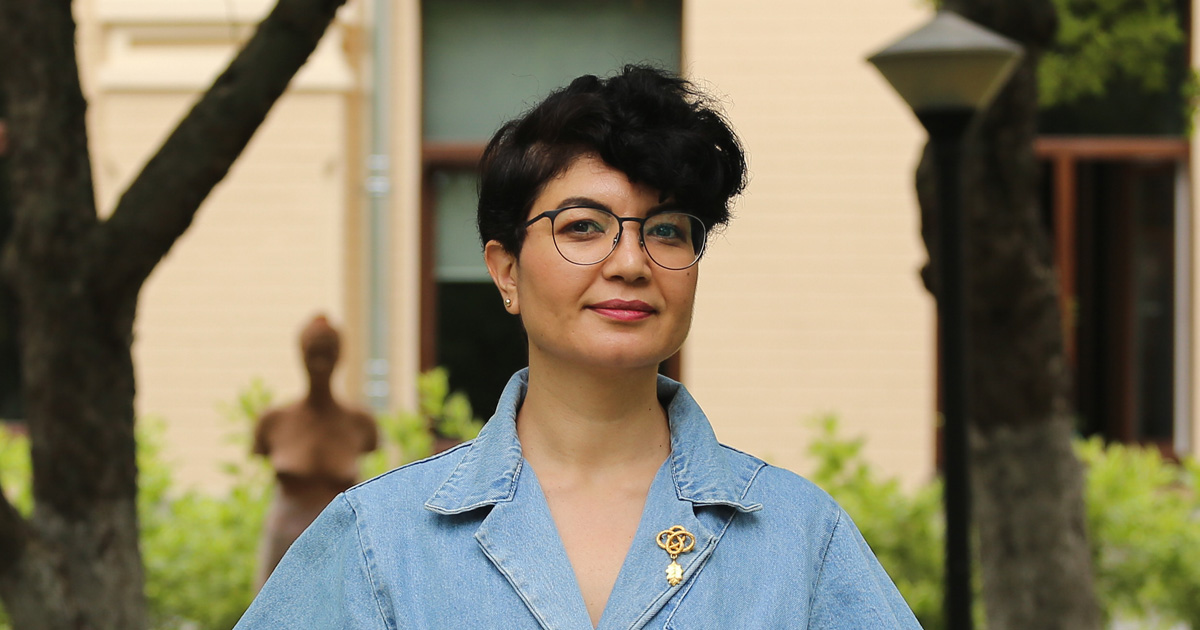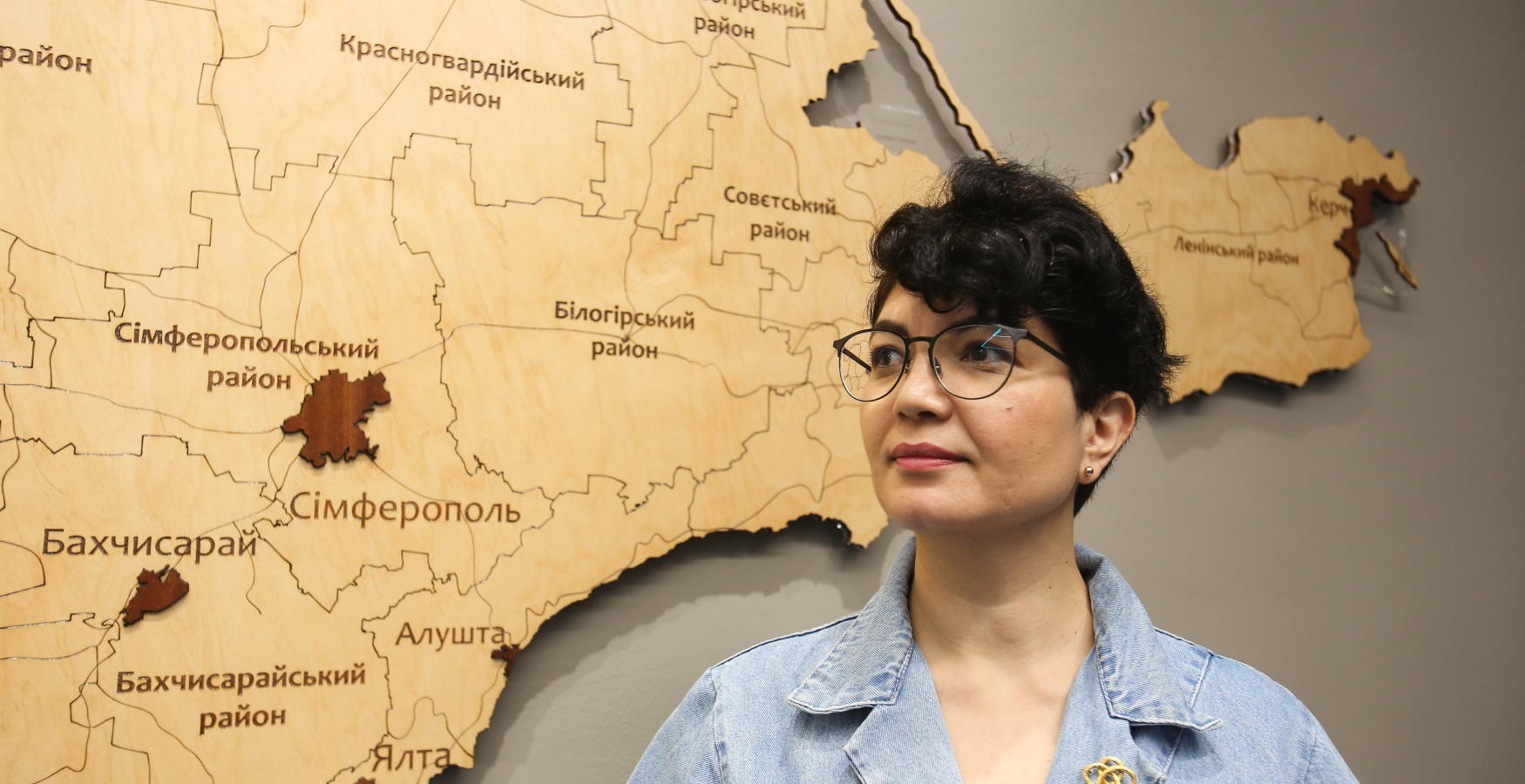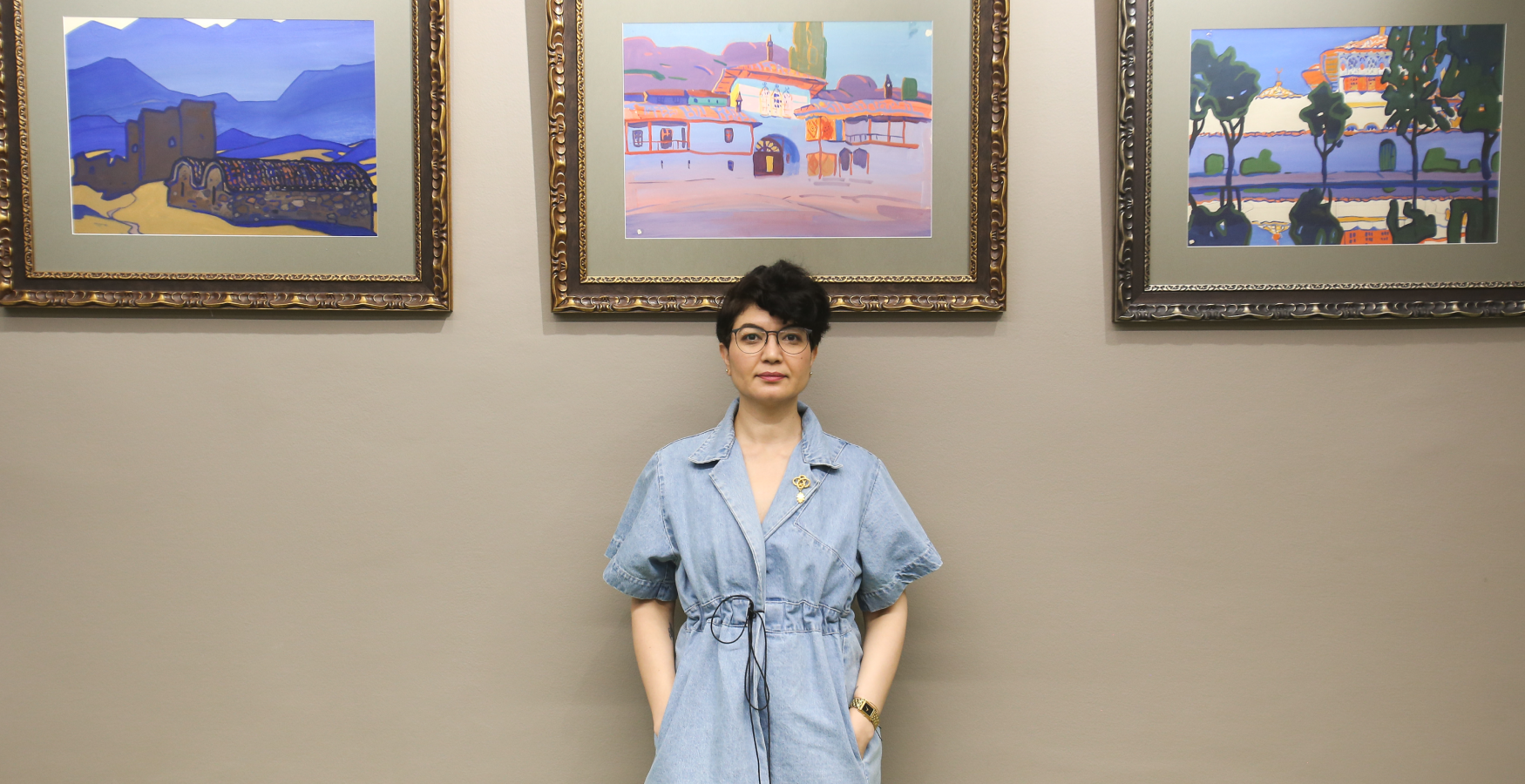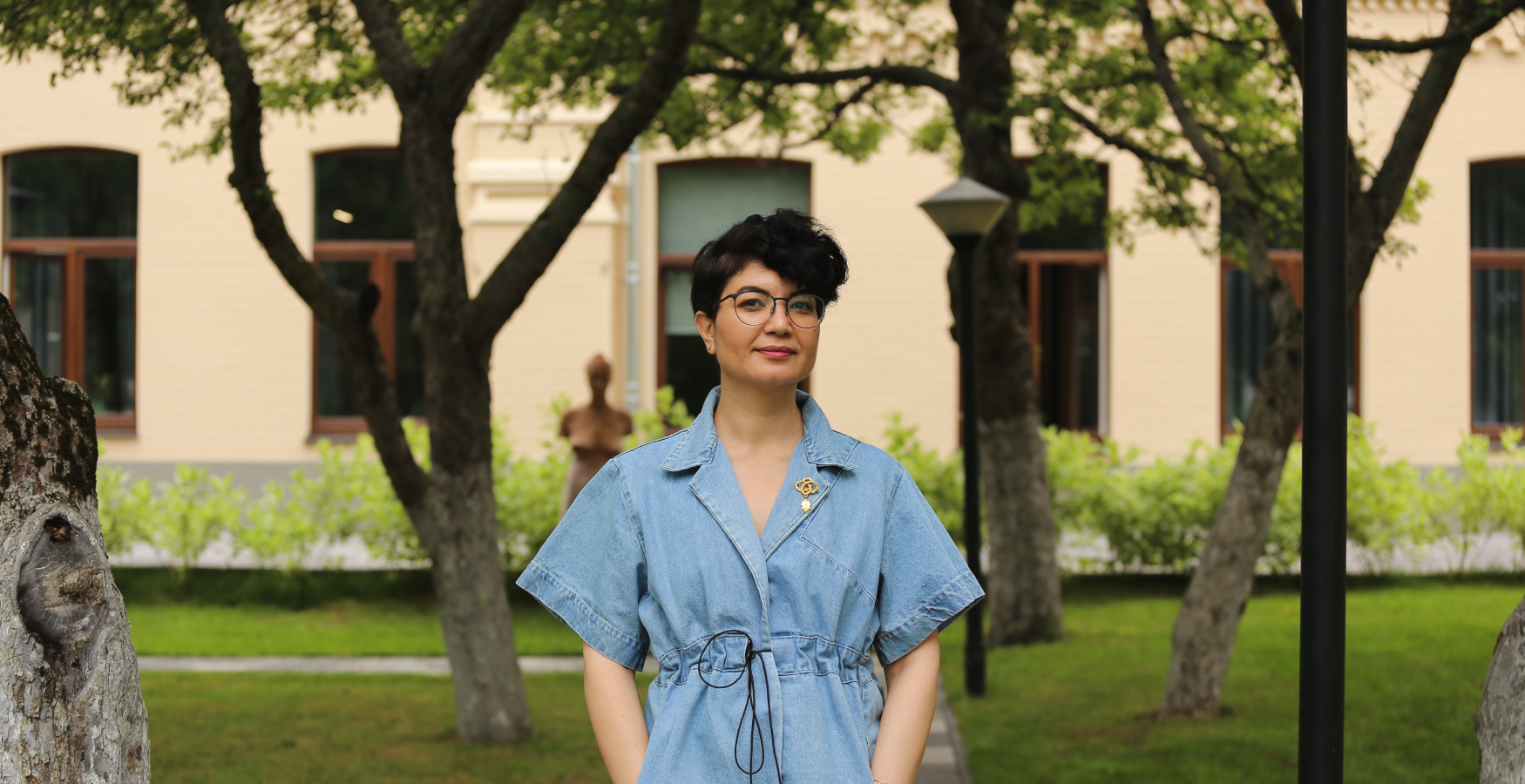Tamila Tasheva: "Crimea resists and waits for the Ukrainian military"

Since April 2022, Crimean Tatar human rights defender and co-founder of CrimeaSOS, Tamila Tasheva, has been performing the duties of the Permanent Representative of the President of Ukraine in the Autonomous Republic of Crimea. Svidomi spoke with Tamila Tasheva about the Kremlin prisoners, the activities of the Representative Office, the Crimean Platform and the de-occupation of the peninsula.
— What is the focus of the Mission of the President of Ukraine in the Autonomous Republic of Crimea?
— First of all, it should be noted that we are not a new body, it was created in 1992. In 2014, the Representative Office moved from Crimea to Kherson, now our office is temporarily closed; in 2019, we opened a strategic office in Kyiv. Since 2021, the president has extended the mandate to the Crimean platform, and we work as the national office of the Crimean platform. The focus of our work is our citizens who seek advice.
The Crimean platform is our international focus. People abroad did not understand what was happening in Crimea. Therefore, it was agreed that it was important to inform international partners about the events in Crimea in the context of the full-scale invasion. Today, we collect monitoring human rights violations, war crimes, and follow the mobilization of Ukrainian citizens for war. We record the Ukrainians’ resistance. We spread information so that Crimea does not get lost in the war.
The third direction is informative. We are a key body that works 24/7 with information from Crimea. We also inform citizens living in the occupied territory of what the state is doing after the start of a full-scale war.
— Tell us about the Crimean Platform-2022, what is it about?
— Now we are working out specific steps, what to do, and how to regain control: what will happen to people who illegally came to the territory of Crimea, what will happen to the ownership of the property they acquired, what will happen to people who sided with the enemy and became collaborators, etc.
— How do partners support the de-occupation of Crimea?
— We see a huge level of support for Ukraine in this matter. Of course, some talk about concessions that Ukraine should make, but we reject such talk, stressing that we stand on the principles of territorial integrity within the internationally recognized borders of 1991.
Crimea is a part of Ukraine, and we will make every effort to return this territory.
For when they talk about concessions, they mean Crimea, and we will never go for it, because it's not just about the territory, it's about the people who have been living under occupation for eight years.
If we talk about Ukraine, as a democratic state that is moving towards integration into the EU, which is based on the values of human rights, we cannot leave some region, forget about the people, about the indigenous people of Ukraine - the Crimean Tatars.

— How to work with theses on compromises?
— It's the values argument that counts here. It works: they agree on the value of human rights and turn a blind eye. The second argument is a matter of strategy.
If we do not regain control over the temporarily occupied Crimea, the threat to EU countries and the world, in general, will constantly loom.
Without liberating the territory that has been turned into a military base and a springboard for an attack, we will never be able to feel safe. The issue of security is the third argument.
— What is known about the prisoners of the Kremlin and their number as of now?
— As of now, the Russian Federation is persecuting 138 people for political reasons. The articles they are accused of being different - "extremism", "terrorism" or "subversion". In addition, activists, including Crimean Tatars, are also being deported from the newly occupied territories, in particular, the Kherson and Zaporizhzhia regions. They are persecuted for participating in Noman Chelebijikhan's battalion, and then they are taken to Crimea, where they are tortured and put in prison.
105 people out of 138 are Crimean Tatars. Therefore, it is about persecution on ethnic, national and religious grounds. It has been going on for eight years and has only intensified after the full-scale invasion.
And the numbers are bigger because we don't get all the information.
— Are there known cases of violence against prisoners after the full-scale offensive?
— The conditions of detention of political prisoners are terrible. In the Simferopol pre-trial detention centre, people sleep in turn, because there are too many of them. In addition, the Russian occupiers set aside separate blocks for civilian hostages and activists, who are kept in shackles and with bags on their heads.
— Are there filtration camps on the territory of Crimea?
— This is a specific topic that international partners are paying attention to. Here it is worth talking about the terms we use. To the international media, filtration camps mean places of illegal detention, and there are many places of this kind. There are more than 20 in the Kherson region alone. Absolutely everything is equipped for this: from vocational schools and recreation centres to police stations. In Crimea, the school in Sevastopol and the Simferopol pre-trial detention centre are used for this purpose. By the filtration camp, we are no longer talking about filtration as a process, but as a room where searches and interrogations take place.
— Forced mobilization is taking place in Crimea, so how will it be possible to figure out who is a traitor and who is not after de-occupation?
— There is no answer yet.
The Russian Federation cannot draft its army in the occupied territory. The conscription of citizens who have been forcibly issued passports is prohibited by International Humanitarian Law. But Russia does not care. They conducted 14 conscription campaigns, the 15th started in April — that's about 33,000 citizens who were drafted into the ranks of the Russian army. They are victims of war crimes.
But the line between the victim and the offender is very thin. If a person takes up a weapon to fire at civilian objects, he is already a trespasser, and any protection is removed. Of course, it is important to document this, because then they can say they are innocent. Therefore, we ask the residents of the temporarily occupied territories to do everything possible not to be drafted or at least not to be sent to war. If you have already entered Ukraine, the only option for you not to commit a crime is to surrender. If they are not guilty, the case will be considered individually and, most likely, they will be released. But this is the scope of application of international humanitarian law. In Ukraine, such a person can be criminally liable, so we need to take a balanced approach to this. This applies to the military.
There are still several issues that concern people who betrayed the state. Regarding this, there is an article - on collaborative activity, which now covers most citizens living in the occupied territory. But we don't want that, because the majority of ordinary citizens did not want to leave. And this is right because the Russians are moving their population to Crimea, so it is vital that our citizens should not leave the peninsula.
— How long will these questions be discussed and answers sought?
— They are being discussed even now. These are complex things that will not have easy answers.

— Will Ukrainians in Crimea bear criminal responsibility for having Russian passports?
— According to the current legislation, Ukrainian citizens who received an occupation passport on the territory of the peninsula will not bear any responsibility. Why? Because these documents have no legal force. Forced citizenship is a war crime. After all, any person who lived on the peninsula as of 2014 automatically became a Russian citizen.
— What is known about the partisan movement in Crimea?
— We observe that clear anti-war sentiments intensified on the territory of the peninsula after the full-scale invasion. These are actually hundreds of administrative cases for which people are tried for non-recognition or non-support of the war. There are so-called articles on fakes - this is a new article that was adopted by the Russian Federation and has been actively enacted in the occupied territory. Accordingly, we see that the "new" category of citizens who have not been engaged in anything activist for eight years, but hated Russia, are being tried. And when a full-scale invasion began, they stopped being silent, realized that was the moment when they needed to show themselves. Someone throws Molotov cocktails at the military commandos, someone smashes the glass on cars with the Z symbol, someone does not want to service a Russian military vehicle at a service station - these are hundreds of people, some of whom are leaving Crimea due to persecution. Now is the period when it is necessary to talk about such people and support them.
I don't know if the Yellow Ribbon resistance movement is a united network of people, but it also works in Crimea. They also distribute quotes from the president and messages with encrypted QR codes. After the explosions in Novofedorivka, there began to appear posters that the Russians should leave Crimea. This means that Crimea is resisting and waiting to be returned to Ukraine.

— What will be the main challenges that the Representative Office will face after de-occupation?
— There is the issue of property rights and hundreds of thousands of Russian citizens who have to leave the peninsula because they got there illegally - this is a key challenge, so it will be necessary to carry out the decolonization process. The challenge will also be to work with people who spent eight years in the Russian context, with whom we will conduct humanitarian policy.
But we are ready to return Crimea, return to our Simferopol office and work for the benefit of Ukraine and free Ukrainian Crimea.


